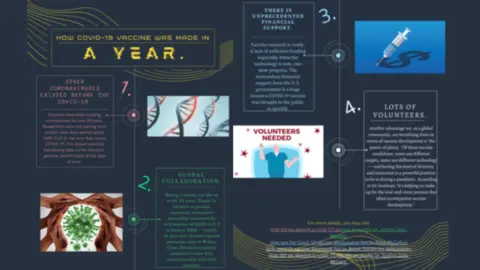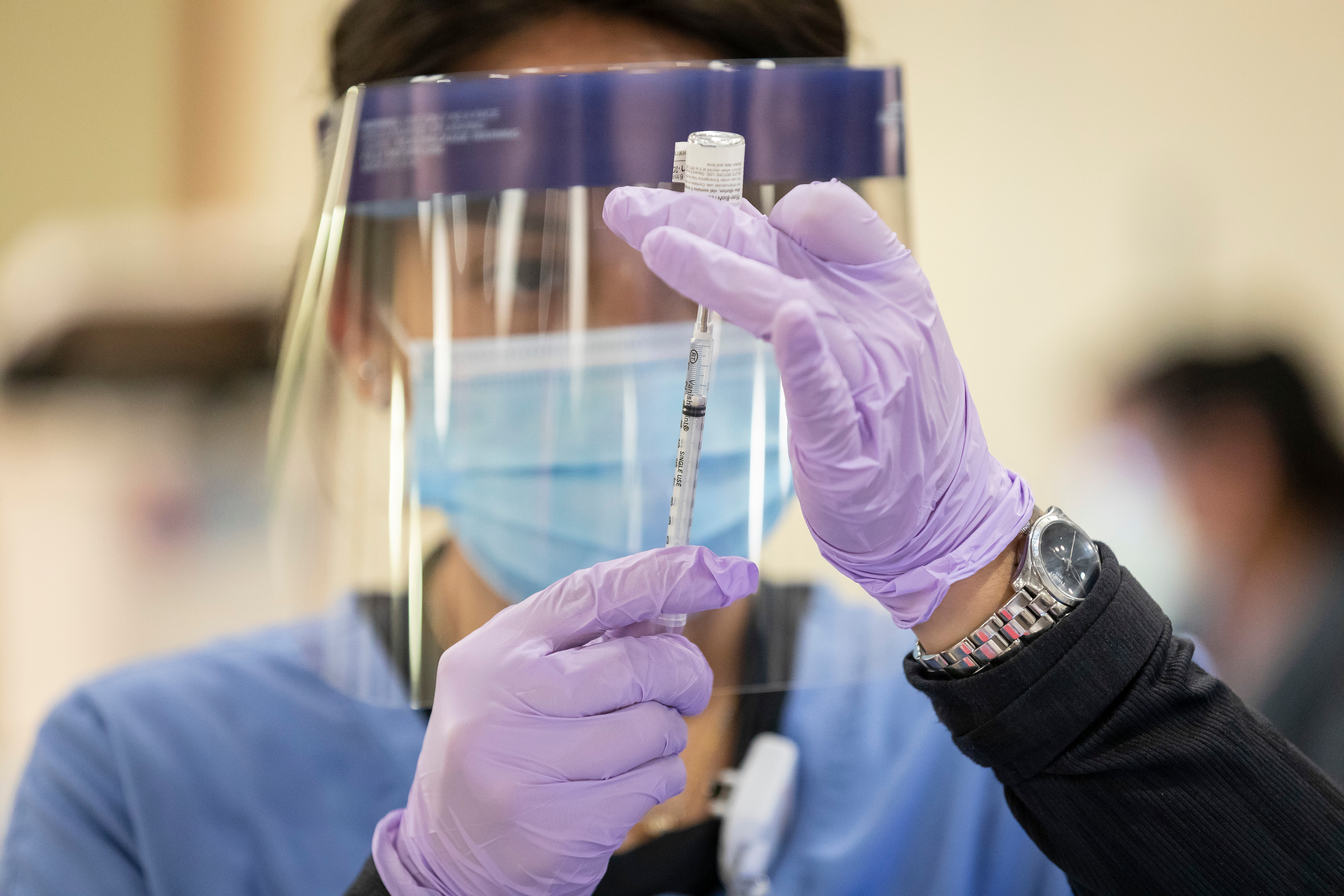This unit was created by Rebecca Coven, an English and social studies teacher at Sullivan High School in Chicago, IL, as part of the spring 2021 Pulitzer Center Teacher Fellowship program on Journalism and Justice. It is designed for facilitation across approximately nine 60-minute live or virtual class periods.
For more units created by Pulitzer Center Teacher Fellows in this cohort, click here.
Unit Objectives
Students will be able to...
- Use the “Process for Becoming Critical Readers” (developed by educator Jess Lifshitz) in order to identify inequities in COVID-19 vaccine distribution and question the root causes of these inequities.
- Develop digital literacy skills in order to make informed decisions about the COVID-19 vaccine and help others make informed decisions.
- Take action in order to work towards equity in vaccine distribution.
Unit Overview
As of April 16, 2021, about 37.1% of Chicago residents have received at least one dose of the COVID-19 vaccine. But the question is: WHO is getting vaccinated? In this unit, students will identify inequities in vaccine distribution in Chicago and then explore why these inequities exist. Students will then work to take action to address these inequities.
Issues of digital literacy have never been more relevant than today as people making decisions about whether to get the COVID-19 vaccine rely heavily on information they find on the internet. Therefore, as high school-aged students become eligible to receive the COVID-19 vaccine, an important part of this work is helping our students navigate the abundance of information that is readily available to them online and on their mobile devices. By engaging in inquiry-based learning, students will develop their own informed conclusions about the COVID-19 vaccine and they will develop digital literacy skills for becoming informed citizens. Because this work is guided by student curiosity, it encourages deep knowledge and understanding of the topic and empowers students to take ownership over their own learning.
This 9-day unit will culminate in civic action work in which students will use what they’ve learned and the skills that they’ve developed in order to work towards equity in vaccine distribution and deconstructing misinformation about the COVID-19 vaccine.
Performance Task
After engaging in the Process for Becoming Critical Readers in order to learn about inequity in vaccine distribution, students will engage in a civic action task in order to work towards equity in vaccine distribution in Chicago.
Unit Plan
Complete 9-day unit plan including warm-ups, daily teacher presentations, additional teaching resources, discussion questions, activities, performance tasks, and rubric
Performance Task
Now that we have learned about the inequity in COVID-19 vaccine distribution that exists in Chicago and we have become more informed citizens about the COVID-19 vaccine ourselves, it’s time for us to take action in order to help reduce these inequities.

Samples of Student Work
Review the collection of student work from Ms. Coven’s students which include infographics, public service announcements, op-eds, and personal testimonies.
In addition some students included audio testimonies, video announcements, and online petitions.
Common Core Standards
- CCSS.ELA-LITERACY.RI.9-10.7: Analyze various accounts of a subject told in different mediums (e.g., a person's life story in both print and multimedia), determining which details are emphasized in each account.
- CCSS.ELA-LITERACY.RI.9-10.8: Delineate and evaluate the argument and specific claims in a text, assessing whether the reasoning is valid and the evidence is relevant and sufficient; identify false statements and fallacious reasoning.
- CCSS.ELA-LITERACY.W.9-10.6: Use technology, including the Internet, to produce, publish, and update individual or shared writing products, taking advantage of technology's capacity to link to other information and to display information flexibly and dynamically.
- CCSS.ELA-LITERACY.W.9-10.7: Conduct short as well as more sustained research projects to answer a question (including a self-generated question) or solve a problem; narrow or broaden the inquiry when appropriate; synthesize multiple sources on the subject, demonstrating understanding of the subject under investigation.
- CCSS.ELA-LITERACY.W.9-10.8: Gather relevant information from multiple authoritative print and digital sources, using advanced searches effectively; assess the usefulness of each source in answering the research question; integrate information into the text selectively to maintain the flow of ideas, avoiding plagiarism and following a standard format for citation.
- CCSS.ELA-LITERACY.SL.9-10.6: Adapt speech to a variety of contexts and tasks, demonstrating command of formal English when indicated or appropriate.
Learning for Justice Social Justice Standards
- JU.9-12.12: I can recognize, describe and distinguish unfairness and injustice at different levels of society.
- AC.9-12.17: I take responsibility for standing up to exclusion, prejudice and injustice.
- AC.9-12.20: I will join with diverse people to plan and carry out collective action against exclusion, prejudice and discrimination, and we will be thoughtful and creative in our actions in order to achieve our goals.







